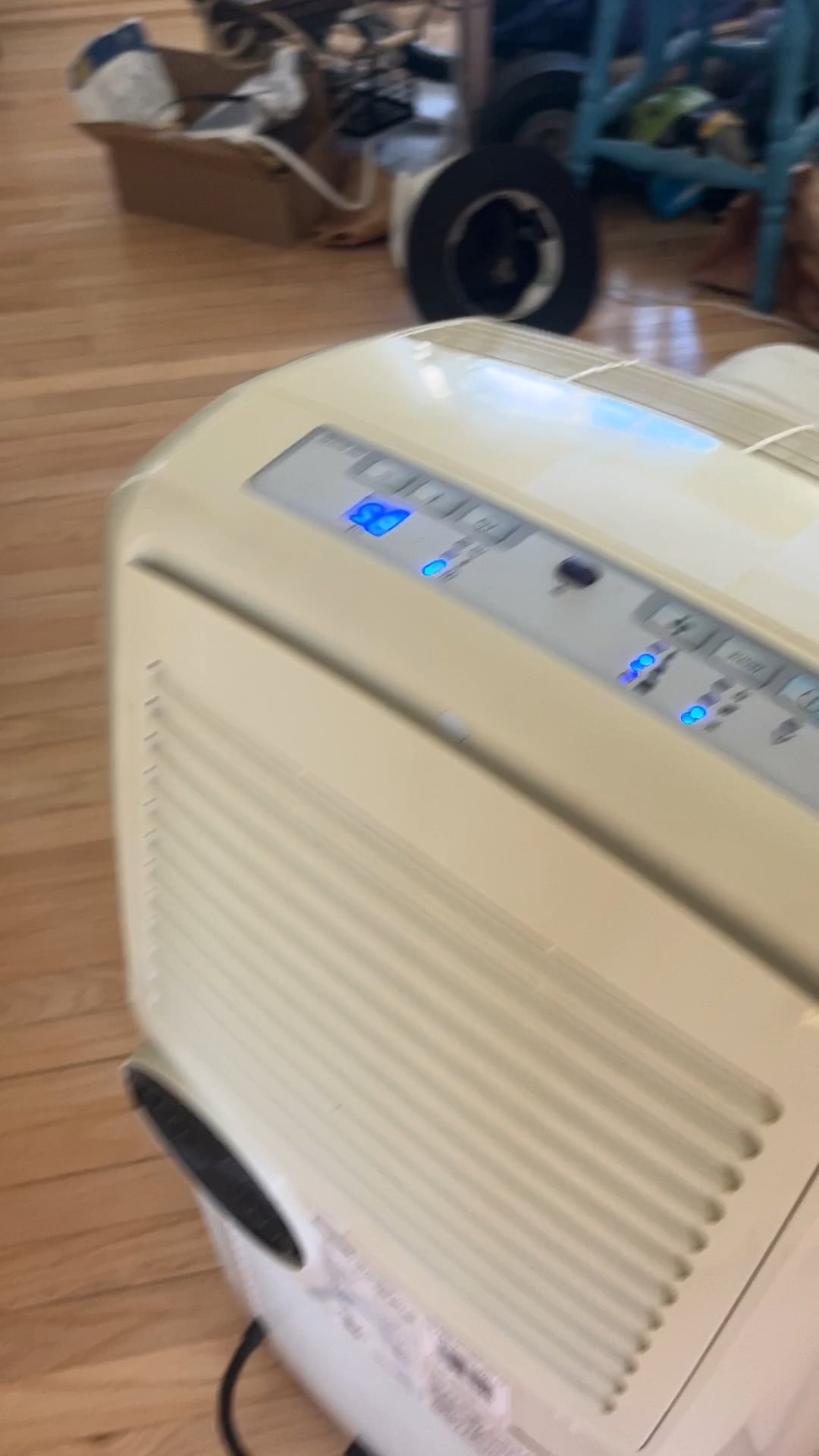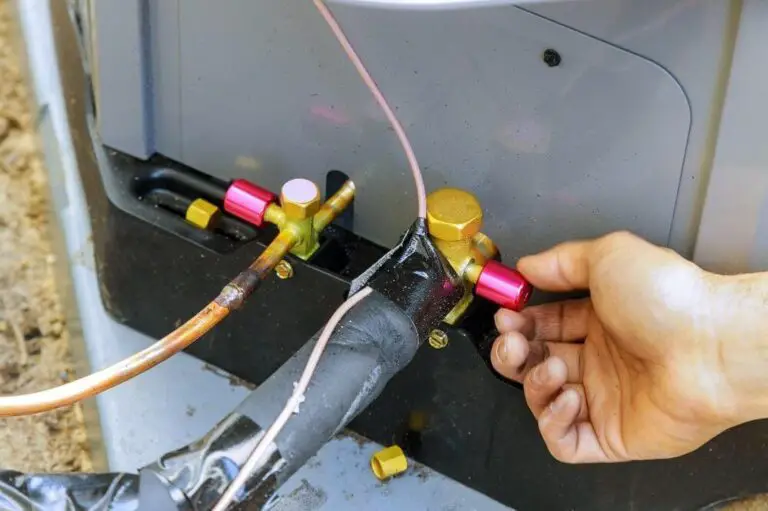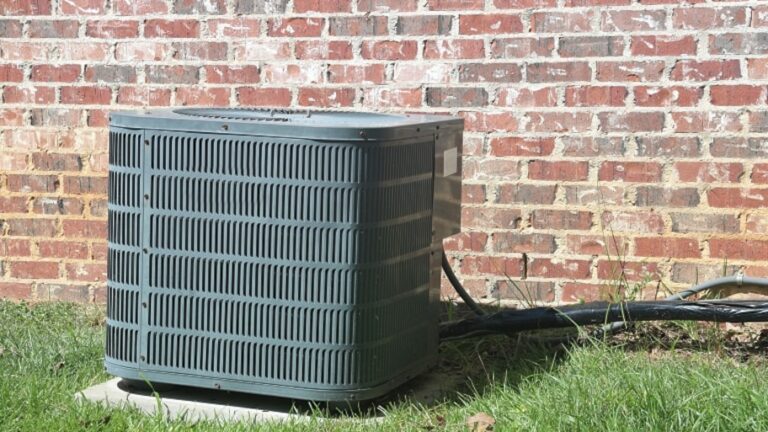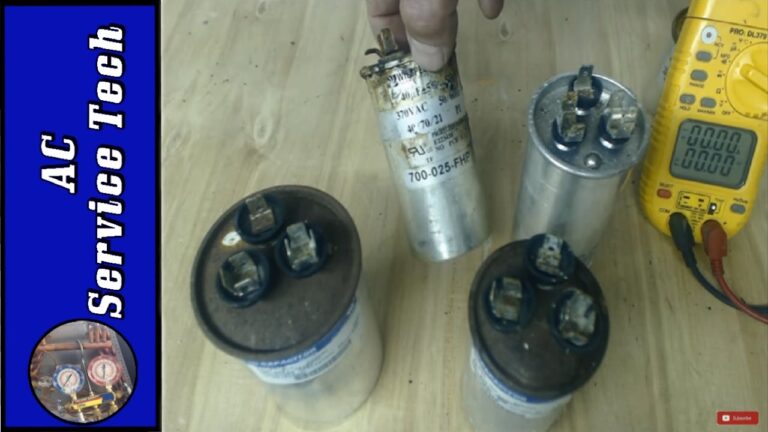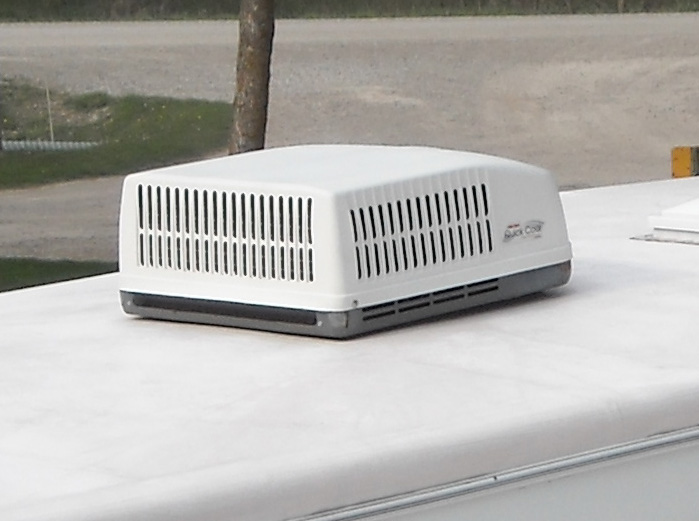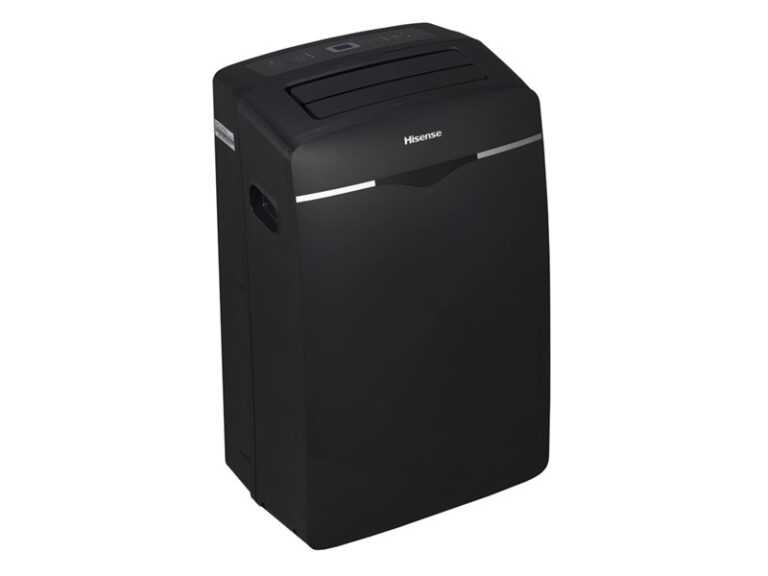Why Is My Portable Air Conditioner Making A Loud Noise? Solutions!
Your portable air conditioner might be making a loud noise due to a loose part or a clogged filter. These issues can disrupt normal operation.
Portable air conditioners are convenient and efficient cooling solutions, especially for small spaces. However, unusual noises can be a sign of underlying problems that need attention. Loose parts can rattle and cause loud sounds, indicating that screws or other components may need tightening.
Clogged filters can also cause the unit to work harder, resulting in increased noise levels. Regular maintenance, such as cleaning the filters and inspecting for loose parts, can help keep your portable air conditioner running smoothly and quietly. Addressing these issues promptly can prevent further damage and ensure a comfortable indoor environment.

Credit: www.youtube.com
Common Causes
If your portable air conditioner is making a loud noise, there could be several reasons. Understanding these common causes can help you diagnose and fix the issue promptly. Here are the most common reasons your unit might be noisy:
Loose Parts
Loose parts are a frequent cause of noise in portable air conditioners. Over time, screws and bolts can become loose. This can make the unit rattle and shake.
- Check all screws and bolts.
- Tighten any that are loose.
- Pay special attention to the compressor area.
Inspect the panels and casing. Ensure everything is secure. A simple tightening can often resolve the issue.
Fan Issues
Another common cause of noise is fan problems. The fan can produce loud sounds if it’s damaged or unbalanced.
- Examine the fan blades for damage.
- Look for any signs of wear and tear.
- Ensure the fan is not hitting any internal parts.
A damaged fan may need replacement. An unbalanced fan can be realigned. This reduces the noise significantly.
Identifying The Noise
Is your portable air conditioner making a loud noise? Knowing what kind of noise it is can help solve the issue. Different sounds point to different problems. Let’s explore how to identify these noises.
Rattling Sounds
Rattling sounds usually mean something is loose. This could be a screw, a fan blade, or any small part. Check the unit for any loose objects. Use a screwdriver to tighten any loose screws. Also, inspect the fan blades. They should not move when touched.
| Possible Causes | Solution |
|---|---|
| Loose Screws | Tighten screws with a screwdriver |
| Loose Fan Blades | Secure fan blades in place |
| Debris Inside Unit | Remove any debris |
Humming Noises
Humming noises often come from electrical issues. A failing motor or compressor could be the cause. Start by checking the air filter. A dirty filter makes the motor work harder. Clean or replace the filter if it is dirty.
- Check the air filter: Clean or replace if dirty.
- Inspect the motor: Ensure it is not overheating.
- Listen to the compressor: It should hum quietly, not loudly.
If the noise persists, it may be best to call a professional. Electrical issues can be complex and dangerous.
Quick Fixes
Is your portable air conditioner making a loud noise? Don’t worry! Try these quick fixes to make it quiet again. You can easily tighten screws and adjust fan blades at home. Follow these simple steps to ensure your air conditioner works smoothly.
Tighten Screws
Loose screws can cause noise. Check all screws on your air conditioner. Use a screwdriver to tighten them. Focus on the outer panels and the fan motor. Make sure to turn the screws gently but firmly.
Adjust Fan Blades
Fan blades can get bent or misaligned. This can create a loud noise. Turn off the unit and unplug it. Carefully inspect the fan blades. If they are bent, gently straighten them. Ensure they are evenly spaced.
Use a ruler to measure the distance between blades. This helps keep the fan balanced. A balanced fan runs quieter. Restart the unit to check if the noise is gone.
Maintenance Tips
Maintaining your portable air conditioner can prevent loud noises. These noises are often signs of underlying issues. Regular maintenance can keep your unit running smoothly and quietly. Below are some essential maintenance tips to help you:
Regular Cleaning
Regular cleaning is crucial for your portable air conditioner. Dust and debris can accumulate inside the unit. This can cause loud noises and reduce efficiency. Clean the exterior and interior parts monthly.
- Unplug the unit before cleaning.
- Use a soft cloth to wipe the exterior.
- Use a vacuum to clean the vents.
- Remove and clean the water tank if applicable.
Filter Replacement
The filter traps dust and particles from the air. A clogged filter can make the unit noisy. Replace the filter every 3-6 months.
- Turn off and unplug the unit.
- Locate the filter compartment.
- Remove the old filter carefully.
- Insert the new filter correctly.
Check the user manual for specific instructions. A clean filter ensures optimal performance and reduces noise.
Following these maintenance tips can help you avoid loud noises. Regular cleaning and filter replacement are key. Keep your portable air conditioner in top shape for a quieter home.
When To Seek Professional Help
Sometimes, your portable air conditioner may start making loud noises. While some noises are minor, others need expert help. Knowing when to call a professional can save you time and money.
Persistent Noise
If your air conditioner makes noise all the time, it is not normal. Persistent noise can mean a deeper issue. This noise might be a sign of a broken part. It is best to call a technician for help. A professional can find the problem quickly.
Here are common signs that noise is persistent:
- Noise does not stop after a few minutes.
- Noise is louder than usual.
- Noise changes but never goes away.
Ignoring these signs can lead to more damage. Persistent noise should not be ignored.
Complex Repairs
Some problems are too complex for DIY fixes. Complex repairs often involve internal parts. These parts need special tools and skills. Trying to fix them yourself can make things worse.
Common complex issues include:
- Broken compressor
- Faulty fan motor
- Electrical issues
A professional has the right tools and knowledge. They can fix complex repairs safely and effectively.
In some cases, you might need a replacement part. Only a professional can get the right part. They can also install it correctly. This ensures your air conditioner works well again.
Here is a quick table to help you decide when to seek professional help:
| Symptom | Action |
|---|---|
| Persistent Noise | Call a Technician |
| Complex Repairs | Call a Technician |
By knowing when to seek professional help, you can keep your air conditioner in good shape.
Preventive Measures
A loud noise from your portable air conditioner can be annoying. Preventive measures can help keep your unit quiet. Here are some effective strategies to avoid loud noises.
Proper Installation
Proper installation of your portable air conditioner is crucial. Ensure the unit is on a flat surface. An uneven surface can cause vibrations and noise. Use a level to check the surface.
Check that all parts are securely fastened. Loose parts can rattle and create noise. Tighten any screws or bolts if needed.
Make sure the exhaust hose is straight. A bent hose can restrict airflow and increase noise. Use the shortest hose length possible.
Avoiding Overuse
Overuse of your portable air conditioner can lead to noise. Give your unit regular breaks to avoid overheating. Overheating can cause internal parts to wear out and make noise.
Do not run the unit at maximum capacity all the time. Operating at lower settings can reduce strain and noise. Use a fan mode when cooling is not needed.
Clean the filters regularly. Dirty filters can block airflow and cause noise. Check the filters every two weeks and clean them if needed.
| Preventive Measure | Description |
|---|---|
| Proper Installation | Ensure a flat surface and secure parts |
| Avoiding Overuse | Give regular breaks and clean filters |
Following these preventive measures can help keep your portable air conditioner quiet. Regular maintenance and proper use are key to reducing noise.
Diy Troubleshooting
Is your portable air conditioner making a loud noise? This can be annoying. You can try some easy fixes yourself. This guide will help you troubleshoot the issue.
User Manual Guidance
Your portable air conditioner has a user manual. This manual is very helpful. It has troubleshooting tips. It also has a list of common problems. Use it as your first step.
Look for the troubleshooting section in the manual. It will have a list of issues and solutions. Follow the instructions carefully. This can solve your noise problem.
Here is a simple table to guide you:
| Problem | Solution |
|---|---|
| Loud Noise | Check if the unit is level |
| Vibration | Tighten loose screws |
| Rattling Sound | Inspect the fan blades |
Online Resources
If the manual does not help, try online resources. Many websites offer troubleshooting tips. You can find videos and articles. These resources are very helpful.
Search for your model number online. Look for forums and help pages. Many users share their solutions. You can learn from their experiences.
Here are some steps to follow:
- Search for your air conditioner model online.
- Visit forums and community pages.
- Watch troubleshooting videos.
- Read articles and guides.
These steps can help you fix the noise issue. Many people find solutions online. You can too.

Credit: www.reddit.com
Choosing A Quiet Model
Portable air conditioners can sometimes be noisy. This noise can be distracting. Choosing a quiet model ensures a peaceful environment. Let’s explore what to look for.
Noise Levels
Understanding noise levels is key. Portable air conditioners have different noise ratings. These ratings are measured in decibels (dB). A lower dB means a quieter unit.
Typical units range from 50 to 70 dB. Models below 50 dB are very quiet. Check the product specifications for dB ratings. Aim for a model with the lowest dB.
Here’s a simple guide:
| Noise Level (dB) | Description |
|---|---|
| 30-40 | Very Quiet |
| 40-50 | Quiet |
| 50-60 | Moderate Noise |
| 60-70 | Loud |
Customer Reviews
Customer reviews are a great resource. They provide real-world insights. Read reviews to understand noise levels. Look for mentions of quiet operation.
Check multiple sources for unbiased opinions. Pay attention to both positive and negative reviews. Look for common themes about noise.
Here are steps to find useful reviews:
- Visit trusted retail websites.
- Read the top-rated reviews.
- Check reviews with photos or videos.
- Note any recurring noise complaints.
- Consider expert reviews for detailed analysis.
Choosing a quiet model involves research. Focus on noise levels and customer feedback. This ensures you get a peaceful portable air conditioner.

Credit: www.reddit.com
Frequently Asked Questions
Why Is My Portable Ac So Loud All Of A Sudden?
Your portable AC might be loud due to loose parts, dirt buildup, or a malfunctioning fan. Check for obstructions, clean filters, and ensure components are secure. If noise persists, consider professional servicing.
How Do I Stop My Portable Air Conditioner From Making Noise?
Ensure the unit is on a flat surface. Clean the filters regularly. Tighten any loose screws. Check for obstructions in the vents. Place a rubber mat underneath to reduce vibration noise.
Why Is My Portable Ac Making A High Pitch Noise?
A high-pitch noise from your portable AC can be due to a loose fan blade or motor issue. Check for debris or obstructions. Regular maintenance helps prevent such noises.
Conclusion
Regular maintenance can prevent loud noises from your portable air conditioner. Always check for loose parts and clean filters. Addressing these issues ensures a quieter, more efficient unit. Following these tips, you can enjoy a peaceful, cool environment. Keep your portable air conditioner in top condition for optimal performance.

